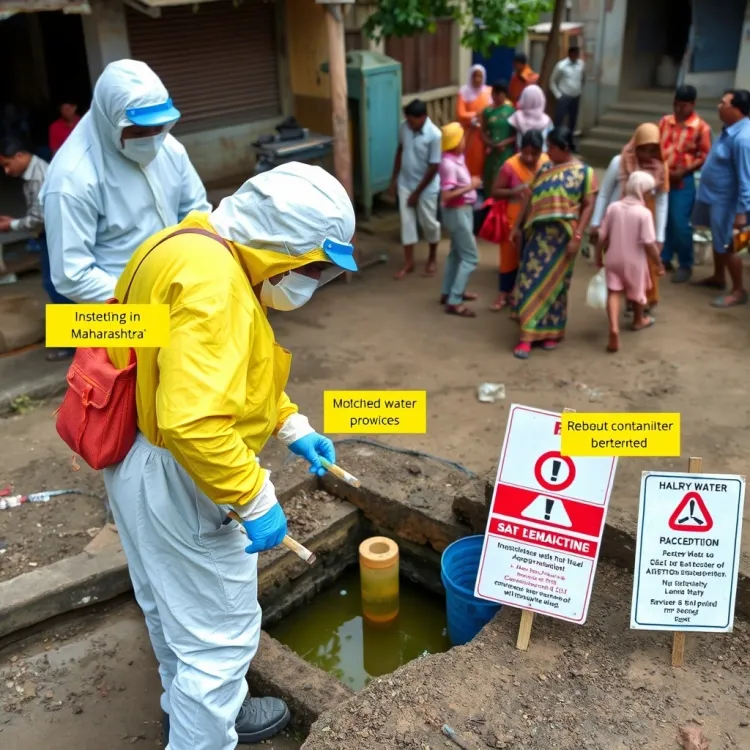Seven Lives Lost to Guillain-Barré Syndrome (GBS) in India Amid Rising Cases in Maharashtra and Tamil Nadu
The rare neurological disorder Guillain-Barré Syndrome (GBS) has claimed the life of a 10-year-old boy in Chennai, Tamil Nadu, bringing the total number of deaths in India to seven. This tragic incident highlights the growing concern over the spread of GBS, a condition triggered by viral or bacterial infections. The boy's death adds to the already alarming toll, with the majority of casualties reported in Pune, Maharashtra, where five of the seven fatalities have occurred.

Growing Number of GBS Cases in Maharashtra
Maharashtra has seen a sharp increase in GBS cases, with the number of reported infections rising by three to a total of 166. The state's Health Department has confirmed that the transmission is primarily waterborne, although foodborne transmission has been ruled out as a possible cause. The department's assertion underscores the importance of ensuring clean and safe drinking water, a factor that appears to be contributing to the spread of the disease.
To address the growing public health crisis, Union Health Minister JP Nadda chaired a high-level video conference meeting with Maharashtra’s Health Minister Prakash Abitkar and other state officials. During the meeting, Nadda emphasized the need for focused efforts on water purification and ensuring the supply of clean and potable water. He assured the state government of the central government’s full assistance in combating the rising cases of GBS.
Understanding Guillain-Barré Syndrome (GBS)
Guillain-Barré Syndrome is a rare autoimmune neurological disorder where the body’s immune system mistakenly attacks its own nervous system, often following an infection. Doctors have noted that GBS can develop in patients shortly after they have had a viral or bacterial infection. The syndrome can manifest in various ways, including severe weakness in limbs, difficulty walking, and problems with coordination and balance. Some patients also experience facial muscle weakness, abdominal pain, diarrhea, fever, nausea, or vomiting.
The severity of GBS varies from person to person. In more serious cases, patients may require respiratory support and physical therapy to aid in recovery. Early intervention, such as intravenous immune globulin (IVIG) therapy or plasma exchange, is crucial in managing the symptoms. For many patients, recovery is possible with appropriate treatment, though the duration can vary significantly. Depending on the severity of the symptoms, the recovery period can last from a few weeks to several months or even years.
Measures and Government Response
With the number of GBS cases steadily rising, particularly in Maharashtra, local authorities have heightened efforts to contain the spread of the disease. As GBS is suspected to be linked to poor water quality, health experts are urging state and local governments to prioritize water purification initiatives and ensure that the public has access to clean and safe drinking water.
Union Health Minister Nadda’s assurance of federal assistance to state governments like Maharashtra reflects the seriousness of the situation. It is evident that the Indian government is taking steps to coordinate efforts and provide resources to manage the growing health crisis. Along with addressing water safety, the government is also working to ensure the proper medical care and support for those already affected by GBS.
Conclusion
As the death toll rises and the number of GBS cases increases, the urgency for improved water safety and healthcare interventions grows. The Indian government is working to address the outbreak, but the situation remains precarious, particularly in regions heavily affected by the disease. Guillain-Barré Syndrome is a complex disorder, but with early diagnosis, appropriate treatments, and ongoing government support, there is hope for managing and reducing its impact on the population.
As India faces this public health challenge, the collective efforts of health officials, local governments, and the public will play a vital role in minimizing the spread of GBS and safeguarding the well-being of its citizens.
What's Your Reaction?








/cloudfront-us-east-2.images.arcpublishing.com/reuters/AZSSTFYWA5MXZM7FLVPISUL7R4.jpg)






